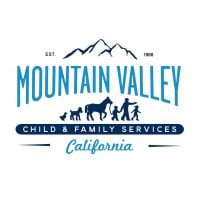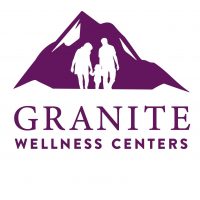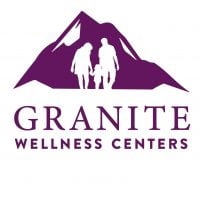Community Recovery Resources - Inpatient
Drug Rehab Center in Grass Valley, California
- Substance Abuse
- Opioid Addiction
- Dual Diagnosis
- Alcoholism
Community Recovery Resources - Inpatient in Grass Valley, California provides comprehensive and quality care for those suffering from alcohol and substance abuse, opioid addiction, and dual diagnosis with experienced professionals, detoxification services, and inpatient care.
About Community Recovery Resources - Inpatient in California
Community Recovery Resources - Inpatient is a treatment facility located in Grass Valley, California. It specializes in providing comprehensive care for individuals seeking recovery from alcoholism, substance abuse, opioid addiction, and dual diagnosis. Offering a range of services, including detoxification and inpatient treatment, this facility aims to support individuals in their journey to sobriety. Community Recovery Resources - Inpatient accepts private health insurance and is affiliated with Granite Wellness, further enhancing its commitment to providing quality care to those in need.
Community Recovery Resources - Inpatient offers a variety of treatment methods and services to address different types of addiction and substance abuse. With a focus on addressing dual diagnosis, they provide integrated treatment for individuals struggling with both addiction and mental health disorders. Their team of professionals offers personalized care and evidence-based therapies to help individuals overcome the challenges associated with addiction. Additionally, Community Recovery Resources - Inpatient provides detox services, ensuring a safe and supportive environment for individuals as they begin their recovery journey. By offering a range of services and utilizing effective treatment methods, this facility aims to support individuals in achieving long-term sobriety and improved overall well-being.
Genders
Ages
Modality
Additional
Conditions and Issues Treated
Rehabilitation, Medication, and Therapy – a combination of all three is most effective.
The most successful treatments for drug dependence or abuse have been those that include education and counseling and medication such as methadone or buprenorphine. The right drug abuse treatments need counseling, psychotherapy, and detoxification or medications to help with withdrawal symptoms.
Substance abuse can take many different forms, including the overuse or misuse of prescription drugs, unprescribed drugs, alcohol addiction, and drug addiction.
A combination of treatments is often needed to treat drug abuse issues effectively. In the case of drug abuse, there is no easy answer or one-size-fits-all cure.
While some drug addictions can be treated with counseling and support groups, many drug abusers also need medication to help them overcome their addiction. In other cases, drug abuse can lead to a medical problem and require medical treatment.
Treatment for drug addiction typically combines counseling and psychotherapy with medication and behavioral therapies. In some rare cases, hospitalization may also be required. All different treatments combined are the best way to help someone addicted to drugs, alcohol, or other substances.
Treatment for opioid addiction is best made with the help of medical professionals who are experienced in dealing with these types of drugs. This treatment can involve medications, exercise, behavioral therapy, and counseling sessions. It is important to note that the effectiveness of treatments for opioid addiction vary, so it is vital to research which treatment options are suitable for each individual.
Many people who struggle with opioid addiction need to attend specific programs like methadone , Suboxone or Vivitrol clinics.
These types of programs will provide the patient with legal, prescription medications that can help them overcome their cravings for illegal opioids like heroin or fentanyl . If the patient has a chronic condition like Hepatitis C, they must undergo treatment before they can begin taking these medications.
Individuals who are addicted to drugs and/or alcohol often have one or more co-occurring mental health disorders. Addressing both the addiction and the mental health problems at facilities like Community Recovery Resources - Inpatient can be very beneficial for these individuals.
Common mental health conditions that often co-occur with addiction include:
- Anxiety Disorders – People with drug and alcohol problems often suffer from anxiety disorders such as panic disorder, obsessive-compulsive disorder, social anxiety disorder, and generalized anxiety disorder.
- Depression – One of the most common mental illnesses co-occurring with addiction is major depressive disorder.
- Attention-deficit hyperactivity disorder (ADHD) – Many people with drug and alcohol problems also suffer from ADHD.
- Bipolar Disorder – People with bipolar disorder are more likely to suffer from drug and alcohol problems than the general population, and vice versa.
Levels of Care Offered
This center offers a variety of custom treatment tailored to individual recovery. Currently available are Detox, Dual-Diagnosis, Inpatient, with additional therapies available as listed below.
Detox is the stage of recovery where the drugs or alcohol are entirely removed from your body. There are two different ways to detox, with medications and without. For many drugs and alcohol, the acute phase of detox can be completed in a number of days.
Inpatient recovery offers individual therapy, groups, and family therapy. The length of inpatient addiction treatment depends on the addict and their addiction. Inpatient rehab is a costly drug treatment, costing anywhere from $30k- to $60k. However, insurance often offers help in covering these costs.
Therapies & Programs
Trauma therapy is a clinical process that helps individuals deal with mental stress often caused by traumatic events. The therapist helps the person identify, understand and work through the problem. This is done with the help of talking about it in group or one-on-one counseling sessions.
Therapists use relaxation, role-playing, art, and music to help the person open up about what is bothering them. Some examples include:
- Talking about the traumatic event and how it affected them.
- Helping those who have PTSD to deal with their nightmares and recurring memories.
- Working with individuals to resolve the issues triggering the stress, whether seeing someone who reminds them of what happened or feeling helpless.
The individual is also encouraged to help others that are struggling with similar problems. This often helps them feel empowered and gives them hope.
Trauma therapy is not for everyone; it is usually reserved for people who have recently experienced a traumatic event and struggle to get over it. It is generally done for children, teenage victims of sexual assault, and war veterans.
Payment Options Accepted
For specific insurance or payment methods please contact us.
Is your insurance accepted?
Ask an expert, call (888) 674-0062
Additional Details
Specifics, location, and helpful extra information.
Grass Valley, California 95945 Phone Number(530) 271-1140 Meta DetailsUpdated November 25, 2023
Staff Verified
Community Recovery Resources - Inpatient Patient Reviews
There are no reviews yet. Be the first one to write one.
Grass Valley, California Addiction Information
More than 3 million of California's citizens are addicted to illegal drugs. Almost 800,000 people use hard drugs, almost 5 million use marijuana, and another 2.1 million abuse alcohol every year. Other substance abuse issues such as binge drinking and teen drug use are also common. Many illegal drugs such as cocaine, heroin, methamphetamine, and marijuana are smuggled into the state from Mexico.
In 2017, Grass Valley reported having 447 drug-related crimes. This is a 21% increase from the previous year. The most popular drugs being abused in Grass Valley and the surrounding areas are methamphetamines, heroin, and prescription drugs. Marijuana is also widely available and abused. Some of the most common types of treatment in Grass Valley include inpatient treatment, outpatient treatment, and 12-step programs.
Treatment in Nearby Cities
- San Mateo, CA (134.6 mi.)
- Carlsbad, CA (468.0 mi.)
- Palmdale, CA (360.3 mi.)
- Downey, CA (400.2 mi.)
- Sanger, CA (192.6 mi.)
Centers near Community Recovery Resources - Inpatient
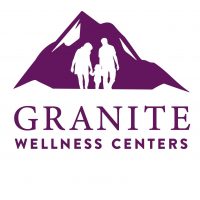
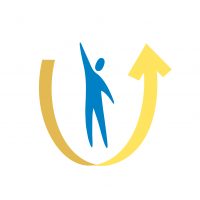


The facility name, logo and brand are the property and registered trademarks of Community Recovery Resources - Inpatient, and are being used for identification and informational purposes only. Use of these names, logos and brands shall not imply endorsement. RehabNow.org is not affiliated with or sponsored by Community Recovery Resources - Inpatient.

